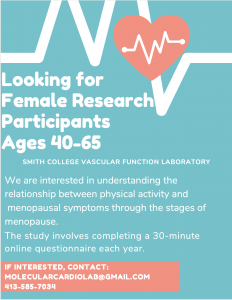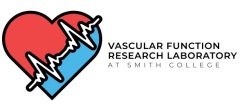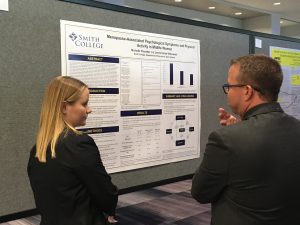
We are excited the announce of the launch of our new online questionnaire study! The study, entirely online, consists of a yearly 30-minute questionnaire designed to investigate the relationship between physical activity and menopausal symptoms as women progress through the stages of menopause. If you are a woman between the ages 40-65, you may qualify.
Menopause is defined as the cessation of menstrual periods; however, symptoms associated with menopause can follow for years before and after the final menstrual period. We are interested in evaluating whether physical activity patterns relate to symptoms pre- and post-menopause.
The online questionnaire will ask about your physical activity, menopause and obstetrical history, and menopause symptoms each year. The questionnaire will take about 30 minutes to complete each year. There is no compensation for participation.
Contact us at molecularcardiolab@gmail.com or 413-585-7034 if you are interested.

 Her analysis of self-reported data revealed that higher levels of physical activity were related to fewer negative psychological and fewer vasomotor symptoms in our population. The preliminary data suggest that habitual physical activity may aid in the management of physiological and psychological symptoms of menopause.
Her analysis of self-reported data revealed that higher levels of physical activity were related to fewer negative psychological and fewer vasomotor symptoms in our population. The preliminary data suggest that habitual physical activity may aid in the management of physiological and psychological symptoms of menopause.